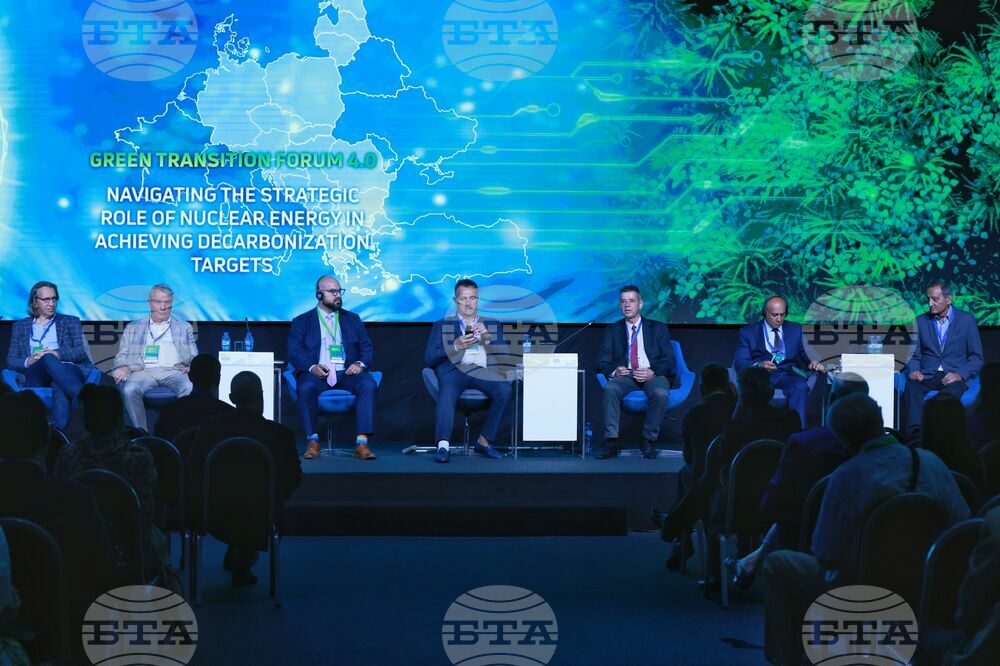site.btaExperts Look at Nuclear Energy, Sustainability Goals at Green Transition Forum


The role of nuclear energy in achieving sustainability goals was discussed by experts on Thursday during the second day of the Green Transition Forum 4.0 - New Global Perspectives for CEE Region in Sofia.
Anton Ivanov, Deputy Chair of the Bulgarian Energy and Mining Forum, said nuclear power is the only energy source that has proven itself over time. He said nuclear energy is a baseload capacity.
Oscar Prat, Senior Bulgaria Project Director Energy Systems, Westinghouse, explained that six nuclear power plants in the world use reactors with this technology. There are four units built in China, and in the state of Georgia in the USA. The units are generation 3. This enables the nuclear plant to restart within 72 hours after it has been completely shut down.
Petyo Ivanov, Executive Director of Kozloduy - New Capacities NPP, commented that in terms of the implementation of Units 7 and 8 of the nuclear power plant, Bulgaria's project is at the most advanced stage of all similar projects in Europe. From a licensing point of view, Bulgaria has an approved site from the Nuclear Regulatory Agency. There is also an Environmental Impact Assessment which has come into force for Unit 7. The procedure for Unit 8 is also underway. It is currently proceeding according to the schedule adopted by Parliament. The contract for the interim design is about to be signed between a consortium of Westinghouse and Hyundai as the construction company.
Joe Philipsz, Senior CEE Investment and Infrastructure Expert and Chair of SFT, believes that true decarbonization cannot be achieved without nuclear power. Furthermore, nuclear power provides long-term employment. The problem with it is how safety is perceived in the sector. In his view, nuclear power is already linked to decarbonization and the public needs to be convinced of its benefits.
Prof. Georgi Kaschiev, chief expert at Kozloduy NPP (2021-2024), pointed out that there are 416 operating nuclear reactors in the world. Last year, nuclear power generated more than 22% of the world's electricity. There are countries where it is extremely important, such as France with about 65% share. Since the turn of the century, however, there has been stagnation in the sector. According to Kaschiev, the reason for this is that new projects with a large capacity of more than 1,000 megawatts are very complicated to implement, very complex and therefore their construction is hard. The average time to build a new nuclear unit in the world from the pouring of the foundation to its inclusion in the grid has reached 8.5 years. Only in China this time is just over 7.5 years. The second reason is that, as the time increases, so do the financial costs.
/PP/
news.modal.header
news.modal.text